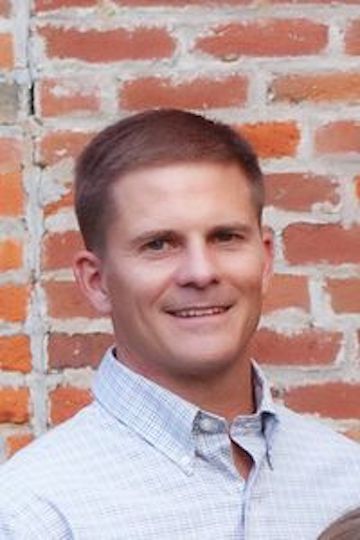Rep. Williamson railed against at local board meetings
Published 12:41 pm Wednesday, April 21, 2021
Rarely do local level politicians openly criticize one another in public meetings, but members of both the Panola County Board of Supervisors and the Mayor and Board of Aldermen in Batesville and Sardis have this month been excoriating State Rep. Brady Williamson with a vigor usually reserved for cattle thieves, card cheats, and rascals who throw beer bottles in cemeteries and church parking lots.
Williamson, a Republican elected in 2019 to represent District 10, in which a considerable portion of Panola County falls, has angered elected officials (and others) with two votes in the recently ended 2021 session of the Mississippi Legislature.
Both votes had the potential to destroy years of economic development efforts in Batesville and Sardis. Both votes also were directly in line with Williamson’s promises to voters at numerous political rallies and campaign events in Panola and Lafayette Counties, where most of the electorate for District 10 is located.
Trending
Williamson said repeatedly in campaign speeches, and to this newspaper, that he was steadfast on reducing the tax burden on Mississippians, and if elected would vote against all tax hikes and appropriation bills that included projects that could be undertaken by private parties, or were merely political pork and a waste of taxpayer’s money.
The first term representative has indeed cast votes with that philosophy – a mix of staunch fiscal conservatism and Tea Party ideas – at the forefront of his work in Jackson.
Meanwhile, back home in District 10, the repercussions of Williamson’s campaign promises have begun to raise the ire of his supporters, or former supporters as well may be the case.
Panola Partnership CEO Joe Azar and Batesville Alderman Stan Harrison have been the most vocal “anti-Brady” officials at the regular board meetings, but it has appeared that all the elected officials have taken a negative stance against the currently representation, nodding in agreement to the verbal chastisements of Azar and Harrison.
It began at the supervisors’ meeting April 5, with Azar informing the board that the State Legislature included $2 million more dollars for The Concourse project, which matches in total the money given the project by Panola County and the City of Batesville.
“It was a real blessing for Panola County to have this part of the project finished with the state matching the city and county financially,” Azar said. “Sen. Nicole Boyd and Rep. Latashia Jackson, and Sen. Robert Jackson literally stayed up all night working to make sure our Concourse project did not get excluded.”
Trending
“We have Sen. Boyd and Sen. Jackson to thank for all their hard work in support of Panola County economic development, and really all of the Legislature, but not Rep. Williamson who voted against Panola County and against The Concourse, so please don’t thank him,” Azar said.
The supervisors, already upset with Williamson for voting against the renewal of the three percent Tourism and Economic Development tax for the Town of Sardis, quickly agreed with Azar.
“He hasn’t helped us, and I don’t think we can expect him to help any,” said Supervisor John Thomas. “You hear that, Josh? That’s something you can run on the next time,” he said, addressing Batesville businessman Josh Hawkins in attendance.
Hawkins ran for the District 10 seat as an Independent in an election when many voters in Panola and Lafayette County had pledged to vote only for Republican candidates, namely Tate Reeves for Governor and Donald Trump for President.
A week later at the City Board meeting in Batesville, Alderman Harrison brought the matter up near the end of the regular meeting.
“I just want to make sure that everybody on this board, and really everybody in Batesville, knows what this person elected to represent the best interest of Batesville and Panola County has done, and probably what he will do in the future to hurt everything we have tried to do with economic development,” Harrison said.
“It’s a shame that one man can hurt a place so much,” Harrison said. “I don’t know of anything we can do, but hope that he changes his mind before next year when the city’s tourism tax comes up. It cost Sardis about $150,000 and will cost us about $1.5 million I have heard.”
Although the Sardis Tourism Tax, which adds three percent to all restaurant and lodging bills and goes toward livability improvements for a municipality, was approved overwhelmingly by the entire Legislature, and unwritten rule in the state capitol says that an application to institute that type of tax in an area is not approved if the local representative or senator in that area votes against it.
The City of Batesville, which built the Civic Center with it’s tourism money originally (and bought the street cameras recently), will make the final payment on the Civic Center soon and had hoped to improve the adjacent equestrian buildings and retrofit the Civic Center with new acoustic tiles which would allow for concerts to be held there.
Williams has defended his votes against the tourism tax, stating that when the Legislature abolishes the personal income tax (likely coming next session) the only way to collect funds for the management of the state will be to have a higher sales tax, maybe as much as nine percent.
The savings on personal income tax, Williamson and others say, will in some cases be less than a nine percent sales tax and a three percent tourism tax. He has offered compromises tied to the future ending of income tax, but has staunchly voted against general increases of taxes.
Tourism tax proponents insist that some taxes are “good taxes” and the tourism tax is a prime example. In theory, a municipality with the tourism tax approval to collect extra on hamburgers and hotel beds, benefits from the increase in collections, some of which is paid for by visitors.
Batesville, for example, collects hundreds of thousands each month from restaurant and hotel tax, although many people eat in the city while passing through, and the great majority of hotel rooms are rented by out-of-towners.
There are two special tourism taxes levied in Oxford and Lafayette Counties that funds millions of dollars of projects. Williamson has not publicized whether he intends to also vote against those levies, which would be a blow to economic development supporters say.






